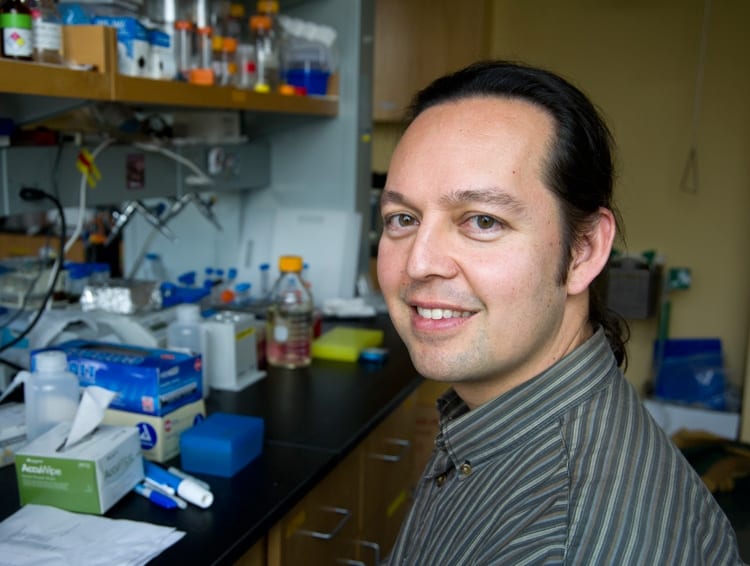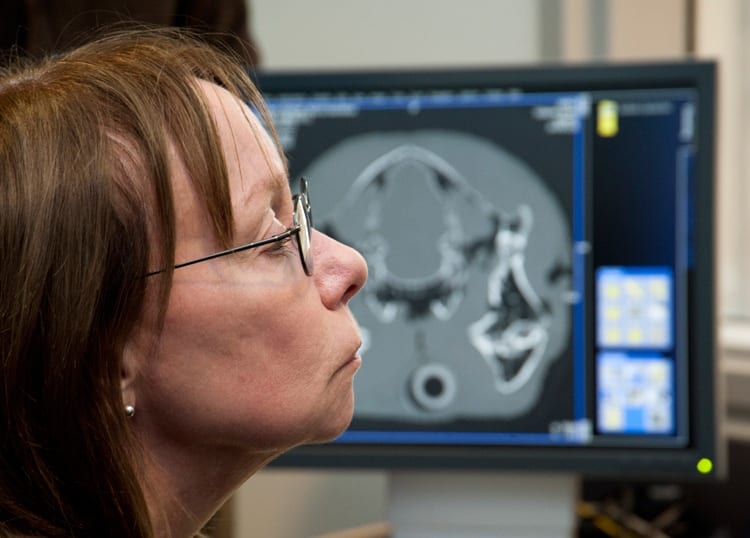News Releases
Study reveals how fishing gear can cause slow death of whales
Using a “patient monitoring” device attached to a whale entangled in fishing gear, scientists showed for the first time how fishing lines changed a whale’s diving and swimming behavior. The…
Read MoreScientists Explore Roots of Future Tropical Rainfall
How will rainfall patterns across the tropical Indian and Pacific regions change in a future warming world? Climate models generally suggest that the tropics as a whole will get wetter,…
Read MoreNew Robotic Instruments to Provide Real-Time Data on Gulf of Maine Red Tide
A new robotic sensor deployed by Woods Hole Oceanographic Institution (WHOI) in Gulf of Maine coastal waters may transform the way red tides or harmful algal blooms (HABs) are monitored…
Read MoreThe Black Sea is a Goldmine of Ancient Genetic Data
Black Sea, sediment, genetic data, past climate, Strait of Bosphorus, Liviu Giosan, Marco Coolen, paleo, DNA, dinocysts, dinoflagellate
Read More‘Dark Oxidants’ Form Away from Sunlight in Lake and Ocean Depths, Underground Soils
oxidants, cells, oxygen, bacteria, superoxide, Colleen Hansel, Peter Andeer, Tong Zhang
Read MoreWHOI to Host Public Event on Fukushima and the Ocean
Japan’s “triple disaster,” as it has become known, began on March 11, 2011, with a magnitude 9.0 earthquake—the fourth largest ever recorded. Following the quake, a 40 to 50-foot tsunami…
Read MoreExperts Call for Network to Monitor Marine Biodiversity
A group of oceanographic experts is calling for the establishment of a national network to monitor the diversity of marine life, a key bellwether of ocean and human health. Their…
Read MoreResearch Enables Fishermen to Harvest Lucrative Shellfish on Georges Bank
Combined research efforts by scientists involved in the Gulf of Maine Toxicity (GOMTOX) project, funded by NOAA’s Ecology and Oceanography of Harmful Algal Blooms (ECOHAB) program, and administered by the…
Read MoreAn Ancient Biosonar Sheds New Light on the Evolution of Echolocation in Toothed Whales
Some thirty million years ago, Ganges river dolphins diverged from other toothed whales, making them one of the oldest species of aquatic mammals that use echolocation, or biosonar, to navigate…
Read MoreExplorer and Filmmaker James Cameron Gives DEEPSEA CHALLENGER Sub to Woods Hole Oceanographic Institution
Explorer and filmmaker James Cameron and Woods Hole Oceanographic Institution (WHOI) have formed a partnership to stimulate advances in ocean science and technology and build on the historic breakthroughs of the 2012…
Read MoreResearchers Issue Forecast for ‘Moderate’ New England Red Tide in 2013
New England is expected to experience a “moderate” red tide this spring and summer, report NOAA-funded scientists studying the toxic algae that cause blooms in the Gulf of Maine. The…
Read MoreScientists Reveal Quirky Feature of Lyme Disease Bacteria
Scientists have confirmed that the pathogen that causes Lyme Disease—unlike any other known organism—can exist without iron, a metal that all other life needs to make proteins and enzymes. Instead…
Read MoreGlaciers Contribute Significant Iron to North Atlantic Ocean
All living organisms rely on iron as an essential nutrient. In the ocean, iron’s abundance or scarcity means all the difference as it fuels the growth of plankton, the base…
Read MoreNew Study Reveals How Sensitive U.S. East Coast Regions May Be to Ocean Acidification
A continental-scale chemical survey in the waters of the eastern U.S. and Gulf of Mexico is helping researchers determine how distinct bodies of water will resist changes in acidity. The…
Read MoreStudy Provides New Insights on Drought Predictions in East Africa
With more than 40 million people living under exceptional drought conditions in East Africa, the ability to make accurate predictions of drought has never been more important. In the aftermath…
Read MoreScientists Use Marine Robots to Detect Endangered Whales
Two robots equipped with instruments designed to “listen” for the calls of baleen whales detected nine endangered North Atlantic right whales in the Gulf of Maine last month. The robots…
Read MoreWoods Hole Oceanographic Institution Establishes New Center for Marine Robotics
The Woods Hole Oceanographic Institution (WHOI) announces a new Center for Marine Robotics. The Center brings together academic, national security, and industrial partners with the goal of applying the full…
Read MoreWHOI Research Projects Awarded $5.2 M to Support Marine Microbial Research
There are more microbes in a bucket of seawater than there are people on Earth. Despite their abundance, humans are only just beginning to fathom the complex role marine microbes…
Read MoreStudy Looks at Gray Seal Impact on Beach Water Quality
Scientists from the newly created Northwest Atlantic Seal Research Consortium (NASRC) are using data collected by the Massachusetts Department of Public Health (MDPH) to investigate whether seals may impact beach…
Read MoreWHOI Scientist Receives Gordon and Betty Moore Foundation Marine Microbiology Initiative Investigator Award
Mak Saito, a biogeochemist at Woods Hole Oceanographic Institution, has been selected for a Marine Microbiology Initiative (MMI) investigator award by the Gordon and Betty Moore Foundation. Saito is one…
Read MoreWHOI Biologist Ketten Named AAAS 2012 Fellow
Darlene Ketten of the Woods Hole Oceanographic Institution has been named a Fellow of the American Association for the Advancement of Science (AAAS). Election as an AAAS Fellow is an…
Read MoreWHOI Engineers Develop and Test New Underwater High-Speed Wireless Communication System
Engineers from the Woods Hole Oceanographic Institution (WHOI) have developed a new wireless underwater communication system to control remotely operated vehicles (ROVs) in real time. This new method may eliminate…
Read MoreNew Research Consortium Brings Scientists, Fishermen, and Managers Together to Address Seal Issues in the Northeast
People come from miles away to see the seals off the shores of Cape Cod and surrounding regions, but the animals are creating some challenges for local fishermen. Recent increases…
Read MoreFishing for Answers off Fukushima
Japan’s “triple disaster,” as it has become known, began on March 11, 2011, and remains unprecedented in its scope and complexity. To understand the lingering effects and potential public health…
Read More

